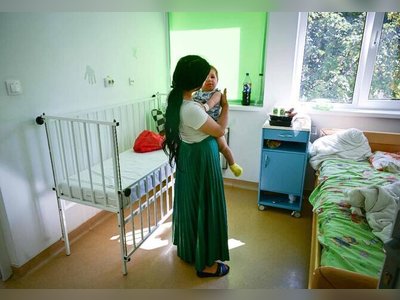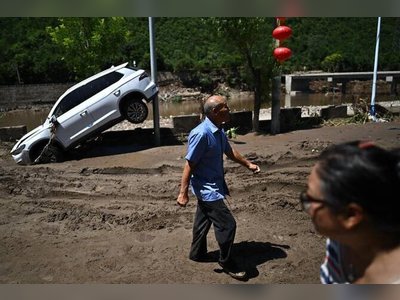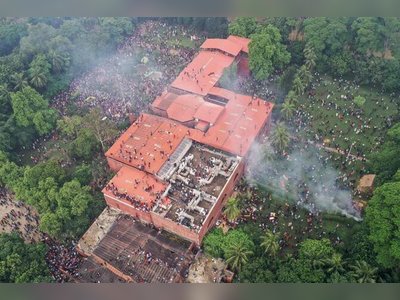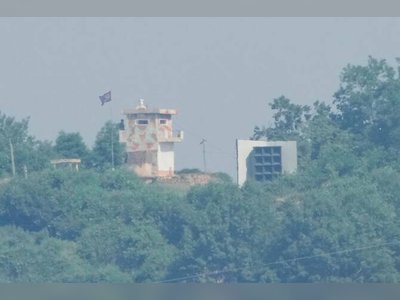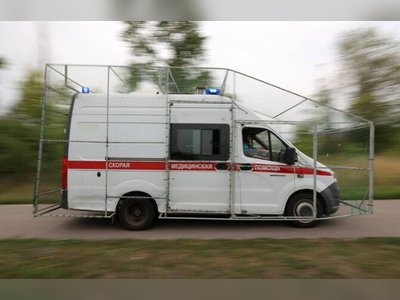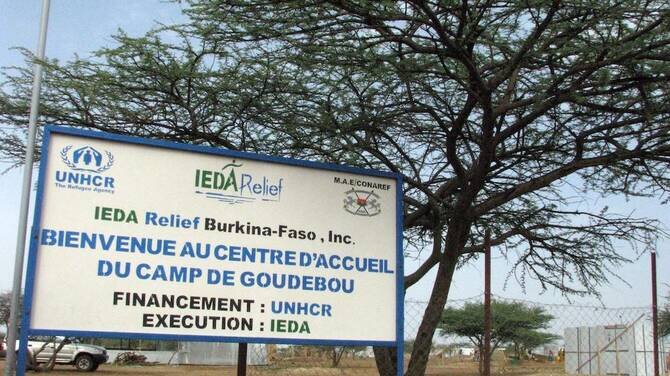
NGOs Caught Between Juntas and Militants in Turbulent Sahel
Non-governmental organizations in the violence-wracked Sahel region face pressure from both military regimes and militant groups.
ABIDJAN: NGOs operating in the conflict-ridden Sahel region find themselves caught between military juntas that accuse them of espionage and militant groups viewing them as symbols of Western influence.
The precarious situation has emerged as nearly 30 million people rely on humanitarian aid provided by non-governmental organizations (NGOs) and international bodies.The United Nations humanitarian agency, OCHA, reports that the majority of the need is concentrated in Mali, Burkina Faso, and Niger, where assistance is critical for approximately 15 million people.
Since seizing power, the juntas have prioritized sovereignty and combating militants, placing NGOs under increased scrutiny as they receive funding from abroad.In recent months, authorities in Burkina Faso revoked the operating permits of 21 NGOs within a span of one month due to administrative reasons.
Additionally, 10 other associations were suspended for three months.
One association member stated, "It’s a tough blow but we are working to meet legal requirements.
For now, our activities are suspended." In neighboring Mali, NGOs funded or supported by France have been suspended since 2022.
The military-led authorities plan to impose a 10-percent levy on NGO funding to be used for the country's development, according to a draft law seen by AFP.Niger’s junta has directed NGOs to align their activities with its priorities, which include bolstering security, establishing production centers to stimulate economic growth, and promoting good governance.
In November, the operating licenses of French aid group Acted and local association Action for Wellbeing (ABPE) were withdrawn.
The Interior Minister, General Mohamed Toumba, declared that many NGOs in Niger are involved in "subversion missions" by supporting terrorists.Furthermore, NGOs must navigate attacks from militant groups affiliated with Al-Qaeda or Daesh, who perceive them as a threat to their power and ideology.
In 2024, the Sahel region remained the epicenter of global terrorism for the second consecutive year, accounting for more than half of deaths attributed to terrorist attacks worldwide, according to the Global Terrorism Index.
Last year, at least 26 humanitarian workers were killed in the region, with many more injured or kidnapped due to security incidents.To mitigate risks, NGOs have limited their operations to urban areas and prefer air transportation, resulting in increased costs.
Local staff now represent a significant presence on the ground for many organizations.
In October, Doctors Without Borders (MSF) ceased operations in Djibo, a northern Burkinabe town surrounded by militants due to attacks targeting its facilities.
Previously, MSF was forced to leave the southeast Nigerien town of Maine Soroa near the Nigerian border in August 2020 following raids by Boko Haram.According to Charlie Werb, an analyst at risk advisory company Alert:24, NGOs are targeted by militant groups aiming to establish themselves as legitimate authorities and supplant the state.
The Islamist outfit Group for the Support of Islam and Muslims (JNIM), affiliated with Al-Qaeda, has stated that it will only allow NGOs to operate if they do not engage in activities contrary to their religious principles.NGOs have been required by juntas to operate under military escort for safety measures.
However, humanitarian workers believe this restricts their actions and exposes them to hostile forces.
A Burkinabe aid worker stated, "Conducting our activities under military escort can hinder our actions and expose us to one of the belligerents."
The precarious situation has emerged as nearly 30 million people rely on humanitarian aid provided by non-governmental organizations (NGOs) and international bodies.The United Nations humanitarian agency, OCHA, reports that the majority of the need is concentrated in Mali, Burkina Faso, and Niger, where assistance is critical for approximately 15 million people.
Since seizing power, the juntas have prioritized sovereignty and combating militants, placing NGOs under increased scrutiny as they receive funding from abroad.In recent months, authorities in Burkina Faso revoked the operating permits of 21 NGOs within a span of one month due to administrative reasons.
Additionally, 10 other associations were suspended for three months.
One association member stated, "It’s a tough blow but we are working to meet legal requirements.
For now, our activities are suspended." In neighboring Mali, NGOs funded or supported by France have been suspended since 2022.
The military-led authorities plan to impose a 10-percent levy on NGO funding to be used for the country's development, according to a draft law seen by AFP.Niger’s junta has directed NGOs to align their activities with its priorities, which include bolstering security, establishing production centers to stimulate economic growth, and promoting good governance.
In November, the operating licenses of French aid group Acted and local association Action for Wellbeing (ABPE) were withdrawn.
The Interior Minister, General Mohamed Toumba, declared that many NGOs in Niger are involved in "subversion missions" by supporting terrorists.Furthermore, NGOs must navigate attacks from militant groups affiliated with Al-Qaeda or Daesh, who perceive them as a threat to their power and ideology.
In 2024, the Sahel region remained the epicenter of global terrorism for the second consecutive year, accounting for more than half of deaths attributed to terrorist attacks worldwide, according to the Global Terrorism Index.
Last year, at least 26 humanitarian workers were killed in the region, with many more injured or kidnapped due to security incidents.To mitigate risks, NGOs have limited their operations to urban areas and prefer air transportation, resulting in increased costs.
Local staff now represent a significant presence on the ground for many organizations.
In October, Doctors Without Borders (MSF) ceased operations in Djibo, a northern Burkinabe town surrounded by militants due to attacks targeting its facilities.
Previously, MSF was forced to leave the southeast Nigerien town of Maine Soroa near the Nigerian border in August 2020 following raids by Boko Haram.According to Charlie Werb, an analyst at risk advisory company Alert:24, NGOs are targeted by militant groups aiming to establish themselves as legitimate authorities and supplant the state.
The Islamist outfit Group for the Support of Islam and Muslims (JNIM), affiliated with Al-Qaeda, has stated that it will only allow NGOs to operate if they do not engage in activities contrary to their religious principles.NGOs have been required by juntas to operate under military escort for safety measures.
However, humanitarian workers believe this restricts their actions and exposes them to hostile forces.
A Burkinabe aid worker stated, "Conducting our activities under military escort can hinder our actions and expose us to one of the belligerents."

